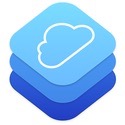GraalVM – A Very Interesting Project
Thursday, September 27th, 2018
I was chatting with a Clojure developer friend this morning, and he mentioned getting the CryptoQuip solver running on the GraalVM and seeing how it performed. I didn't know anything about it, and I decided that if my friend was interested in it, then there's certainly something there, and I should read up on this. I'm very glad I did.
I've seen several attempts at making a Clojure compiler in the past - heck, I've thought about trying it - but each one falls a little short, and only handles a small subset of the complete Java byte codes, and so it's good for little things, but it doesn't really handle big projects that you'd run into in practice. So I started reading, and there is the GraalVM, and the Graal compiler. It's a project from Oracle, and is really about creating a universal VM that can run all kinds of languages - not just JVM-based, which is very interesting, and more than a little ambitious, but more power to them.
They have pages on compiling to native apps to avoid the startup costs of the JVM - which isn't horrible, but for Clojure, what's loaded is a lot more than just the JVM, and it really does make building command-line tools in Clojure hard. But I found another post about a real Clojure example, and it showed that it wasn't all that hard to add a post-processing step after the uberjar, and then you get a native executable that's pretty impressive.
When I did more reading, the big limitation is that code can't hit the class loader and be compiled - makes sense, but in my past one of the really nice libraries that used this to great effect was amazonica and it was really good at handling the AWS details, but I suppose if you're not using AWS, then you're not too bad off.
WHat's for sure is that I'll remember this as it makes Scala, Clojure, and all the JVM languages able to be native code, and that will make Docker images smaller, and everything spin up faster, etc. It even says it does Python, so there's a possibility there.
Very interesting.







